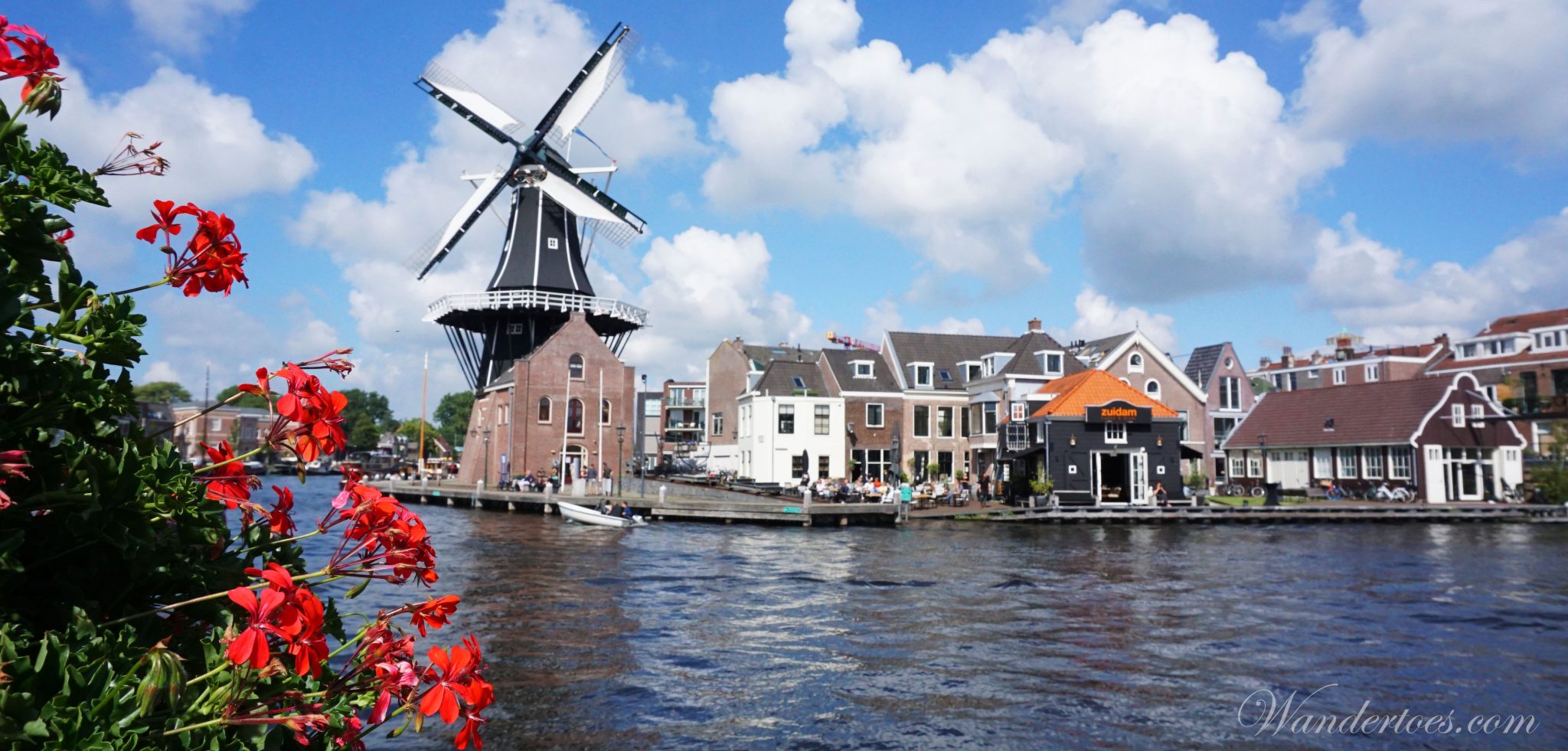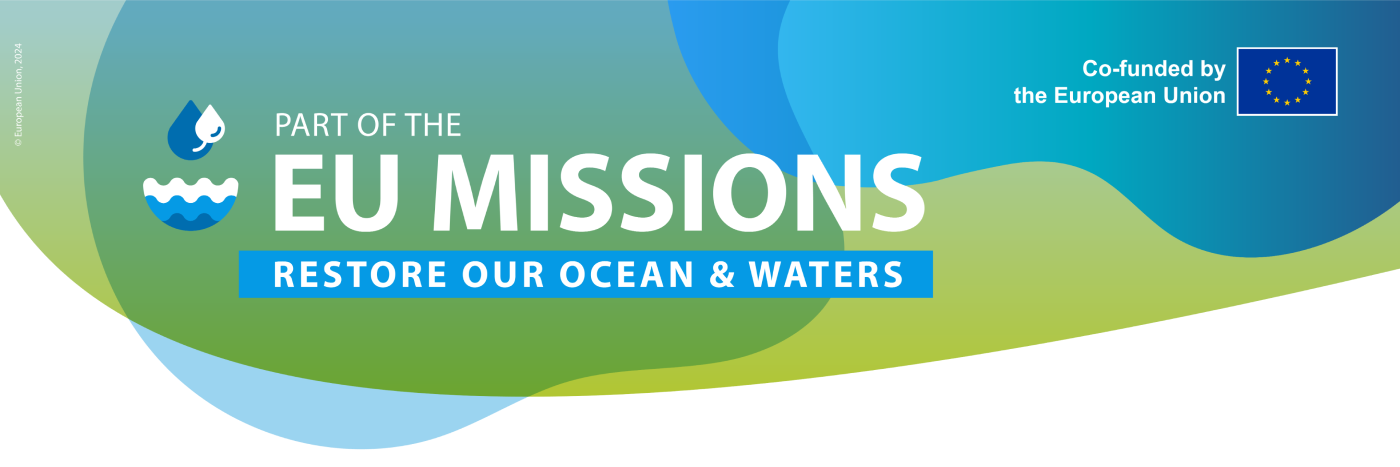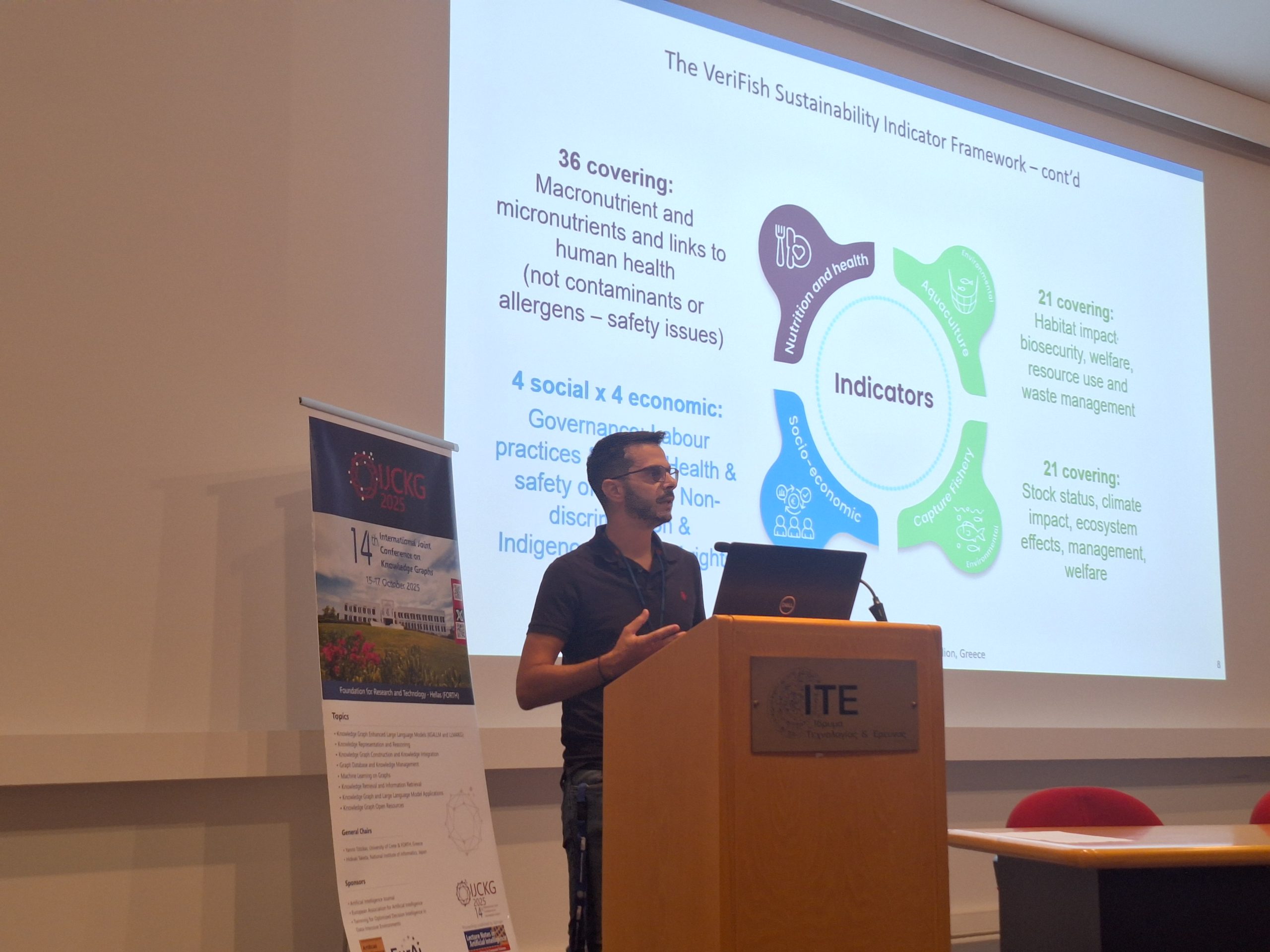Copenhagen, Denmark – June 24, 2025 – The VeriFish project marked a significant milestone in sustainable seafood communication with the official launch of its CEN Workshop Agreement (CWA) at DG Byen in Copenhagen. This European Good Practice recommendation represents a crucial step toward harmonizing how sustainability information is communicated across the seafood value chain.
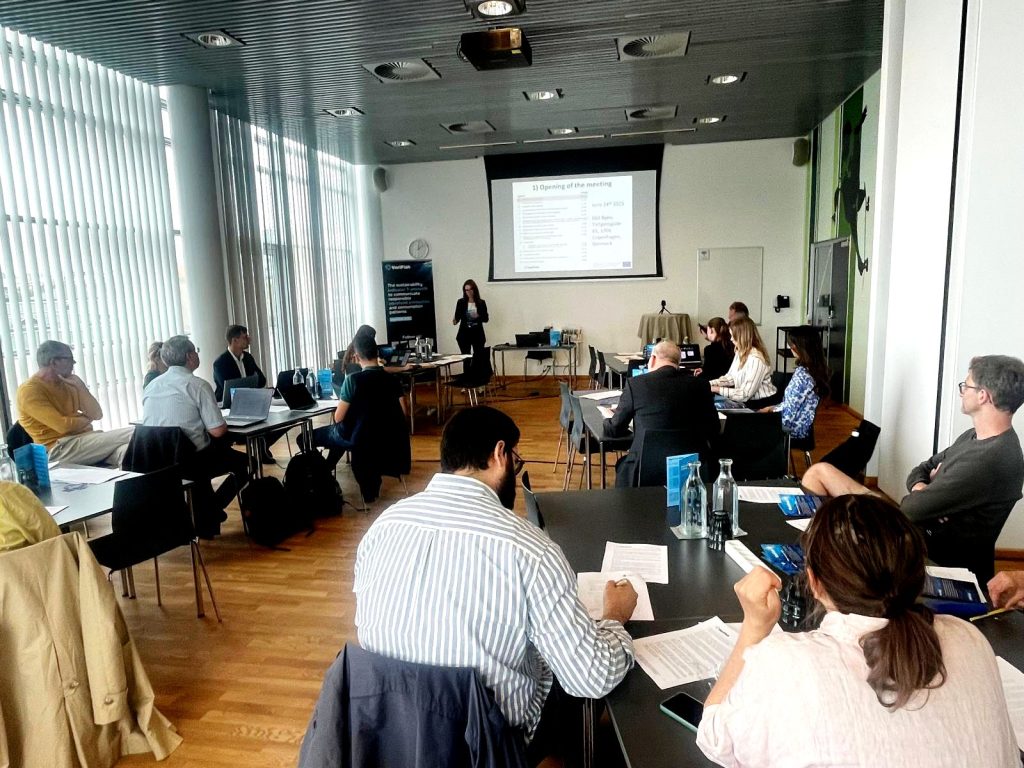
Addressing Critical Communication Gaps
The launch of the VeriFish CWA comes at a pivotal time when consumer awareness about seafood sustainability is growing, yet clear, accessible information remains scarce. The workshop agreement tackles a fundamental challenge: bridging the gap between complex sustainability data and meaningful consumer communication.
“Where our food comes from matters, but this knowledge is not always readily available or accessible for consumers,” explained the VeriFish project team. The CWA provides a structured framework for organizations to communicate about local, seasonal, nutritious, healthy and sustainable seafood in ways that actually influence purchasing decisions.
A Consensus-Building Approach
The CWA development process brings together diverse stakeholders from across Europe’s seafood ecosystem. At the Copenhagen launch event, participants from fisheries, aquaculture, retail, consumer groups, policymakers, and research institutions gathered to review the draft agreement and contribute to its refinement.
This collaborative approach ensures the final CWA reflects real-world needs and practical applications. The workshop format allows for open discussion and consensus-building, incorporating perspectives from organizations that will ultimately implement these communication guidelines.
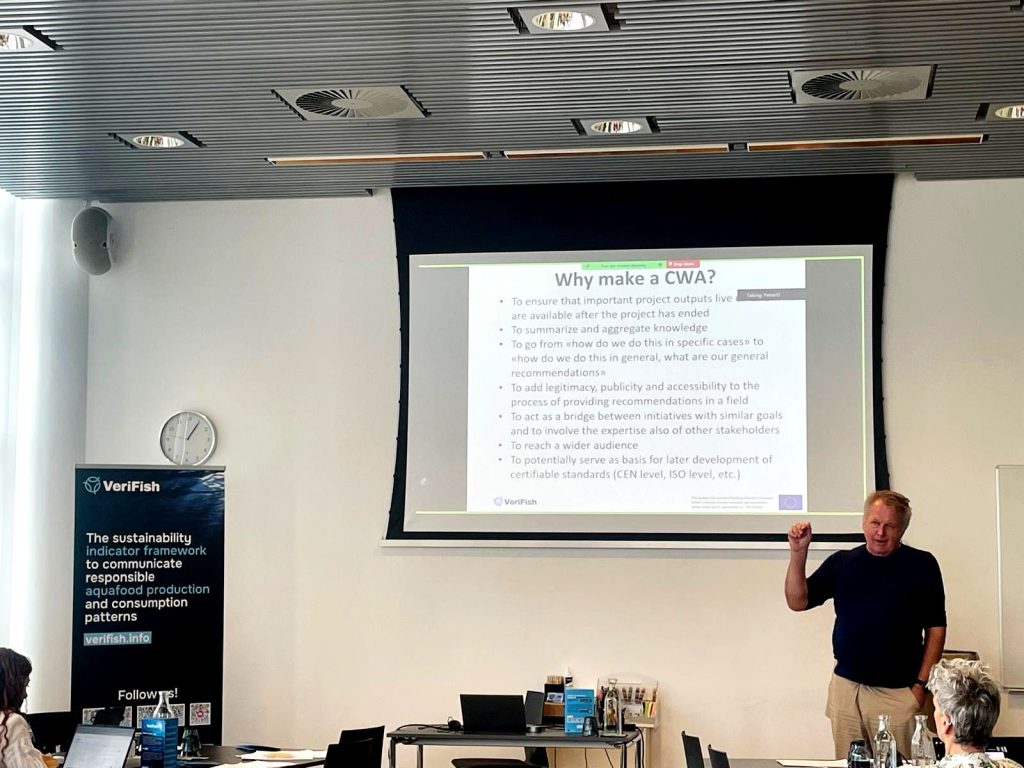
Tackling Ocean Sustainability Challenges
The VeriFish CWA addresses urgent environmental concerns facing our oceans. With threats from overfishing, habitat loss, and climate change intensifying, the need for informed consumer choices has never been greater. By providing clear communication standards, the CWA aims to:
- Enable more effective marketing campaigns that promote sustainable seafood
- Influence consumer buying behavior toward responsible choices
- Support producers and retailers in marketing sustainable products
- Create harmonized communication around seafood sustainability, nutrition, provenance, and biodiversity across Europe
Beyond Marketing: Long-term Impact
While the immediate goal focuses on improving marketing efficiency, the CWA’s broader vision extends to systemic change. By standardizing how sustainability information is communicated, the agreement seeks to create a marketplace where sustainable seafood becomes the preferred choice for both consumers and industry.
The initiative responds directly to calls from seafood stakeholders and communicators who have expressed their need for standardized good practice recommendations in this field. This industry-driven approach ensures the CWA addresses real challenges faced by organizations trying to communicate sustainability effectively.
What Makes This CWA Unique
As a reference document from the European Committee for Standardization (CEN), the VeriFish CWA carries significant weight in establishing European standards. The agreement provides:
- A sustainability indicator framework for responsible production and consumption patterns
- Guidelines for communicating verifiable sustainability indicators
- Best practices for engaging consumers with complex environmental information
- Tools for organizations to market sustainable seafood more successfully
Looking Forward
The Copenhagen launch represents the beginning of the CWA’s implementation phase. Organizations across Europe now have the opportunity to engage with the final stages of the CWA process, contributing to its refinement and preparing for adoption.
The VeriFish project’s approach to creating this CWA demonstrates how collaborative, evidence-based standards can drive meaningful change in how we communicate about food sustainability. As the seafood industry continues to evolve in response to environmental pressures, the CWA provides a roadmap for more effective, honest, and impactful communication.
For stakeholders interested in contributing to the CWA process or implementing its recommendations, the VeriFish team continues to welcome engagement from organizations committed to improving seafood sustainability communication across Europe.
The VeriFish CWA launch event took place on June 24, 2025, from 12:00 PM to 5:00 PM (CEST) at DG Byen, Copenhagen, Denmark. The event brought together European stakeholders to shape the future of seafood sustainability communication.
